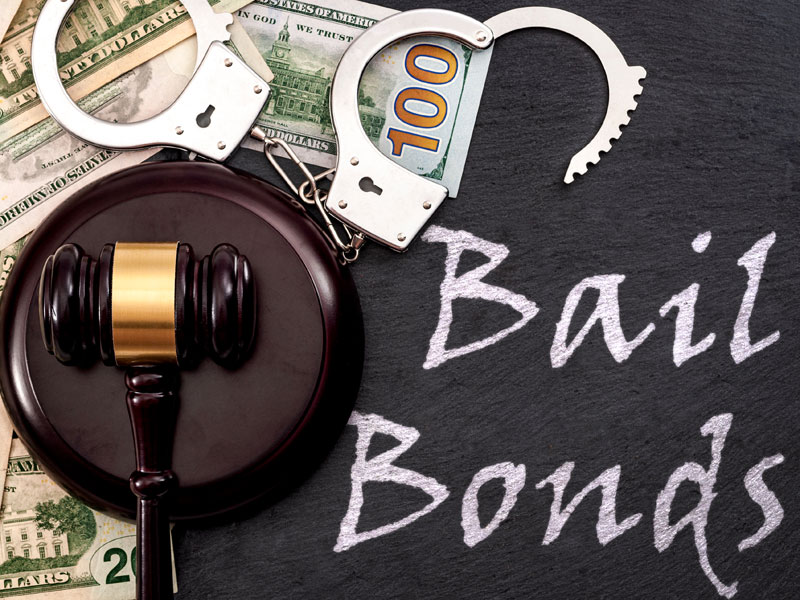The Risks and Responsibilities of Being a Cosigner on a Bail Bond

Understanding the intricacies of the bail bond process can be complex, especially when you’re considering being a cosigner. It’s a significant responsibility, one not to be taken lightly. In this guide, we will explore the risks and responsibilities of being a cosigner on a bail bond.
What is a co-signer?
A co-signer, also known as an indemnitor, is an individual who guarantees that the defendant will appear in court as required. In case the defendant fails to appear, the co-signer becomes financially responsible for the full bail amount.
Cosigning a Bail Bond: What You Need to Know
When you cosign a bail bond, you are essentially entering into a contractual agreement with the bail bond agency. This agreement states that you will ensure the defendant appears in court. Failing which, you will be held financially responsible.
Qualifications Of A Good Co-signer
Being a co-signer is a significant responsibility. Essentially, you’re vouching for another person’s commitment to meet specific obligations, and if they don’t, you’ll be on the hook. Given the importance of this role, there are several qualifications that make a good co-signer:
- Stable Employment: A steady job or a consistent source of income demonstrates reliability and the ability to cover potential costs, if necessary.
- Good Credit Score: This is often the primary reason someone needs a co-signer. A co-signer with a good credit score indicates to lenders that there’s a trustworthy individual who can cover the debt if the primary borrower defaults.
- Residency Stability: Living in one place for a long time can be seen as a sign of stability, which lenders often view positively.
- Low Debt-to-Income Ratio: Lenders want to ensure that a co-signer can cover the borrower’s debt if needed. If the co-signer already has a high amount of debt relative to their income, they might not be a good fit.
- Understanding of Responsibilities: A good co-signer knows what’s expected of them and is prepared to meet those obligations if the borrower fails to do so.
- Close Relationship with the Borrower: Typically, co-signers are close friends or family members of the primary borrower. This closeness means the co-signer believes in the borrower’s ability and commitment to fulfill the required obligations.
- Assets or Collateral: Sometimes, having tangible assets can make a person a more attractive co-signer, especially if the debt is large. In some cases, these assets can be seized if the borrower defaults.
- Good History with the Lender: If the co-signer has had previous positive dealings with the lender, this can be an added advantage.
- Willingness to Take on Risk: This isn’t so much a qualification as it is a mindset. Co-signing a loan or agreement always comes with risks. The best co-signers are those who are fully aware of these risks and still choose to accept them.
- Financial Literacy: A co-signer should have a sound understanding of financial matters, which can help in guiding the borrower, especially if they are inexperienced.
If someone possesses most or all of these qualifications, they can be considered a good candidate for co-signing a loan or rental agreement. However, it’s crucial for both parties to discuss and understand all the terms and potential ramifications before proceeding.
What are a Co-Signer’s Responsibilities?
- Ensuring the defendant’s court appearance.
- Paying any fees if the defendant fails to appear.
- Informing the bail bond agency if the defendant plans to travel.
Things To Consider Before Co-signing A Bail Bond
Co-signing a bail bond is a serious commitment that can have financial and legal implications. If someone you know asks you to co-sign a bail bond for them, it’s essential to fully understand the risks and responsibilities involved. Here are several crucial considerations before making this decision:
- Understanding of Bail Bond Process: Familiarize yourself with how bail bonds work. This includes knowing the role of a bail bondsman, the bail bond’s terms, and what’s expected of the defendant while they’re out on bail.
- Relationship with the Defendant: Evaluate your relationship with the person for whom you’re considering co-signing. Is this person trustworthy? Have they honored commitments in the past? Remember, you’re vouching for their appearance in court.
- Financial Responsibility: If the defendant fails to appear in court, you could be responsible for the full bail amount. Ensure you have the means to cover this cost or be prepared for potential financial consequences.
- Potential Liabilities: As a co-signer, you might be required to provide collateral, like property or assets. Understand that these could be at risk if the defendant doesn’t meet their obligations.
- Legal Consequences: If the defendant skips court, not only could you be on the hook financially, but you might also face legal repercussions or additional involvement in the legal process.
- Impact on Credit: If the defendant fails to appear and you cannot cover the bail bond’s full amount, this could negatively impact your credit score.
- Effect on Personal Relationships: Co-signing a bail bond can strain personal relationships, especially if the defendant fails to appear or if disagreements arise around the bail process.
- Duration of Commitment: Understand how long you’ll be tied to the bond and what’s required of you throughout the entire period. The defendant might have multiple court appearances, extending your commitment as a co-signer.
- Recovery Process: Familiarize yourself with the process bail bond agencies use to recover funds if the defendant doesn’t show up to court. This might involve hiring a bounty hunter or taking legal action.
- Ask Questions: Engage with the bail bond agent. Ensure all your concerns are addressed, and you understand every aspect of the agreement. This is a key step in making an informed decision.
- Gut Instinct: Listen to your intuition. If something doesn’t feel right or if you have reservations about the defendant’s reliability, it’s okay to decline to co-sign.
Co-signing a bail bond is a major decision that shouldn’t be taken lightly. It’s essential to assess the risks, responsibilities, and your own circumstances before committing. Always prioritize your well-being and financial stability. If you’re uncertain, seeking legal or financial advice might be a wise step.
Bail Bond Cosigner Rights
- Receive a refund of any money paid if the defendant adheres to all court requirements.
- Obtain collateral posted, once the case concludes.
Is credit history important when co-signing for a bail bond?
Yes, bail bond agencies might check your credit history to gauge your financial reliability. A good credit score can make the process smoother.
Is It Worth It to Be a Bail Bond Cosigner?
It’s subjective and depends largely on your relationship with the defendant and your financial stability. It’s a commitment that demands consideration, understanding the potential repercussions, and assessing if you’re willing to undertake them.
A Way Out Bonds Is on Your Side
In times of legal turmoil, one needs a trusted partner to navigate the complexities of bail bonds. For over 35 years, A Way Out Bail Bonds has provided Dallas and Tarrant counties with expert, fast, and professional bail bond assistance. With licensed bond agents available around the clock, you’re never alone in your time of need. If you or your loved one needs bail bond services, call us at (214) 760-9978 in Dallas County and (817) 261-2828 in Tarrant County. Let us guide you with discretion, respect, and expert knowledge.
